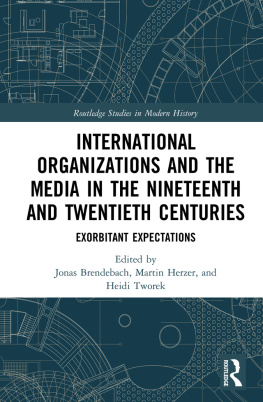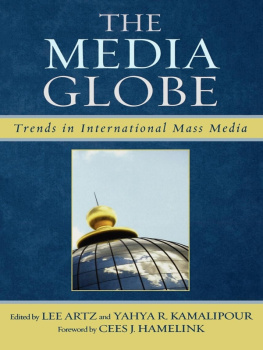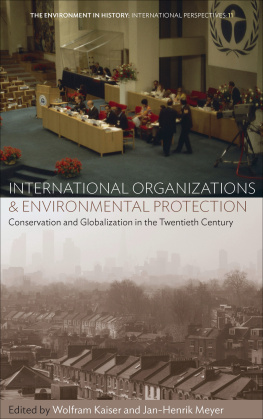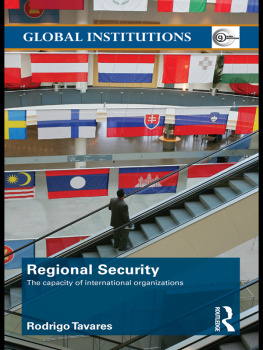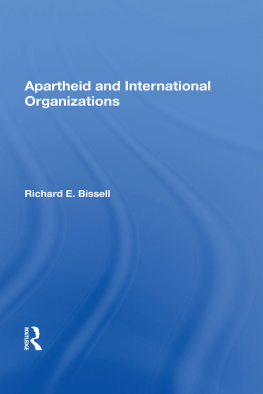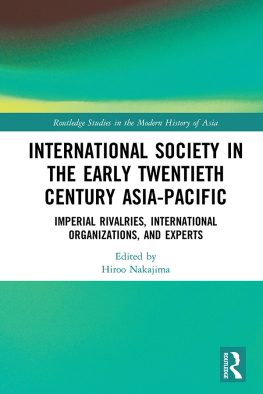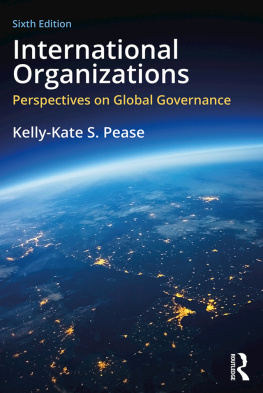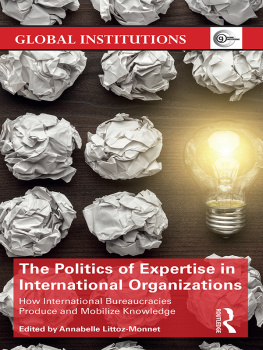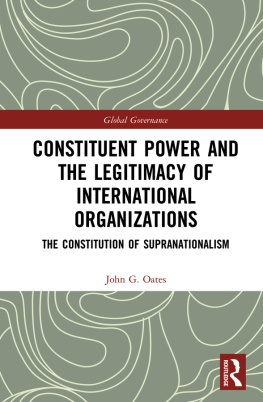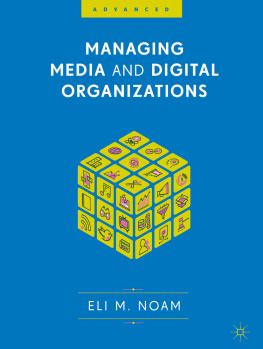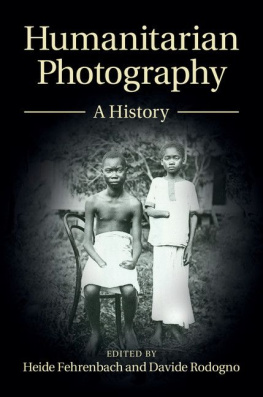Prominent historians and talented young scholars have contributed to this consistent and coherent volume offering a variety of approaches, methods and methodologies. They have zoomed in on the motives, politics and silences of a number of international institutions since the early 19th century. The volume is original and innovates at the level of the optics and perspectives, of the units of analysis and the levels of analysis. It will be a fruitful read for specialists, useful and inspirational for teachers and undergraduate students in history and social sciences.
Davide Rodogno, The Graduate Institute, Geneva
International Organizations and the Media in the Nineteenth and Twentieth Centuries
International Organizations and the Media in the Nineteenth and Twentieth Centuries is the first volume to explore the historical relationship between international organizations and the media. Beginning in the early nineteenth century and coming up to the 1990s, the volume shows how people around the globe largely learned about international organizations and their activities through the media and images created by journalists, publicists, and filmmakers in texts, sound bites, and pictures.
The book examines how interactions with the media are a formative component of international organizations. At the same time, it questions some of the basic assumptions about how media promoted or enabled international governance. Written by leading scholars in the field from Europe, North America, and Australasia, and including case studies from all regions of the world, it covers a wide range of issues from humanitarianism and environmentalism to Hollywood and debates about international information orders.
Bringing together two burgeoning yet largely unconnected strands of researchthe history of international organizations and international media historiesthis book is essential reading for scholars of international history and those interested in the development and impact of media over time.
Jonas Brendebach is a PhD researcher at the Department of History and Civilization at the European University Institute, Florence. He was a visiting doctoral student at Columbia University, New York.
Martin Herzer holds a PhD in History from the European University Institute, Florence. He was a visiting doctoral student in the Department of International History at the London School of Economics and a teaching fellow at the Centre dHistoire at Sciences Po Paris.
Heidi Tworek is Assistant Professor of International History at the University of British Columbia. She received her PhD in History from Harvard University. She manages the United Nations History Project (www.unhistoryproject.org).
Routledge Studies in Modern History
28 The Chronicle of a Peoples War: The Military and Strategic History of the Cambodian Civil War, 19791991
Boraden Nhem
29 The Assyrian Genocide
Cultural and Political Legacies
Edited by Hannibal Travis
30 The Russo-Japanese War and its Shaping of the Twentieth Century
Frank Jacob
31 Understanding the City through its Margins
Pluridisciplinary Perspectives from Case Studies in Africa, Asia and the Middle East
Edited by Andr Chappatte, Ulrike Freitag and Nora Lafi
32 The Style and Mythology of Socialism: Socialist Idealism, 18711914
Stefan Arvidsson
33 Capitalism and Religion in World History
Purification and Progress
Carl Mosk
34 Michael Collins and the Financing of Violent Political Struggle
Nicholas Ridley
35 Censuses and Census Takers
A Global History
Gunnar Thorvaldsen
36 America and the Postwar World: Remaking International Society, 19451956
David Mayers
For more information about this series, please visit: www.routledge.com/history/series/MODHIST
First published 2018
by Routledge
2 Park Square, Milton Park, Abingdon, Oxon OX14 4RN
and by Routledge
711 Third Avenue, New York, NY 10017
Routledge is an imprint of the Taylor & Francis Group, an informa business
2018 selection and editorial matter, Jonas Brendebach, Martin Herzer and Heidi Tworek; individual chapters, the contributors
The right of Jonas Brendebach, Martin Herzer and Heidi Tworek to be identified as the authors of the editorial material, and of the authors for their individual chapters, has been asserted in accordance with sections 77 and 78 of the Copyright, Designs and Patents Act 1988.
All rights reserved. No part of this book may be reprinted or reproduced or utilized in any form or by any electronic, mechanical, or other means, now known or hereafter invented, including photocopying and recording, or in any information storage or retrieval system, without permission in writing from the publishers.
Trademark notice : Product or corporate names may be trademarks or registered trademarks, and are used only for identification and explanation without intent to infringe.
British Library Cataloguing-in-Publication Data
A catalogue record for this book is available from the British Library
Library of Congress Cataloging-in-Publication Data
A catalog record for this book has been requested
ISBN: 978-1-138-30308-9 (hbk)
ISBN: 978-1-351-20643-3 (ebk)
Typeset in Sabon
by Apex CoVantage, LLC
This edited volume is the outcome of the conference Communicating International Organisations in the Nineteenth and Twentieth Centuries held at the European University Institute in Florence in March 2016. We are grateful for the generous financial and administrative support of the Global Governance Programme of the Robert Schuman Center for Advanced Studies at the European University Institute, the Alcide de Gasperi Research Centre at the European University Insitute, the Department of History and Civilization at the European University Institute, and the Faculty of Arts at the University of British Columbia. The editors owe a deep debt of gratitude to Brigid Laf-fan of the Global Governance Programme, Dieter Schlenker and Federico Romero from the Alcide de Gasperi Research Centre, as well as Pieter Judson and Corinna Unger of the Department of History and Civilization at the European University Institute for helping to make the conference and this edited volume possible. We thank Claudia Fanti of the Historical Archives of the EU for her organizational support. We are grateful to all the participants of the conference for their contributions and enthusiasm; we benefitted greatly from insightful commentaries by Sandrine Kott, Davide Rodogno, Federico Romero, Corinna Unger, Annette Vowinckel, and Jrgen Wilke as well as keynote addresses by Iris Schrder and Glenda Sluga. We thank Simone Mller for her very helpful observations on the introduction. Finally, we extend special thanks to Davide Rodogno for his encouragement and trenchant comments on many parts of this project.

